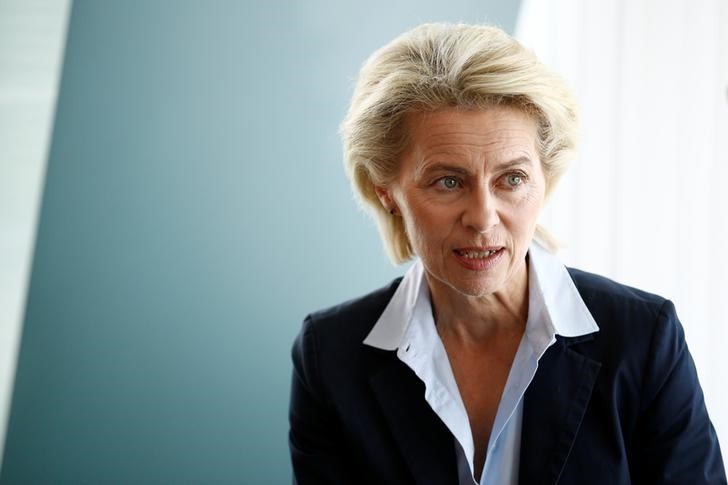By Geoffrey Smith
Investing.com -- European natural gas futures rose on Wednesday as the EU dropped a plan to impose a cap on the price of gas imports from Russia after pushback from its 27 member states.
By 09:30 ET (13:30 GMT) benchmark Dutch TTF prices were up 7.6% at 213.65 a megawatt-hour, after EU Commission President Ursula von der Leyen effectively acknowledged that it would be impossible to implement the measure she proposed last week, as part of an effort to end the EU's energy crisis and reduce the amount of money going to finance Russia's war in Ukraine.
Von der Leyen said in a speech to the EU parliament that the bloc's Brussels-based executive will instead set up a new task force with member states to negotiate with key suppliers such as Norway over lowering prices.
The importance of Norway as a supplier has soared this year as Russia has throttled its exports in order to pressure Europe to drop its support for Ukraine. Last month, Russian gas monopoly Gazprom (MCX:GAZP) shut down the Nord Stream 1 pipeline to Germany indefinitely, alleging technical problems.
A meeting of EU Energy Ministers last week had failed to agree on the price cap proposal, which many saw as having asymmetric effects that would hurt some member states much more than others, without offering effective compensation. Many argued that the measure also risked angering alternative suppliers such as Algeria and Libya. Norway's Prime Minister Jonas Gahr Store had also raised his objections to a price cap, saying it wouldn't solve the EU's gas shortage problems.
However, von der Leyen's speech suggested that the bloc is still likely to proceed with a windfall tax on oil and gas producers, as well as with a mechanism to break the link between gas and electricity prices. The role of gas-fired generation in setting the marginal price for electricity has led to producers with low operating costs, such as nuclear, hydro and renewable generators, making huge profits due to market arrangements which entitle them to receive the same price as gas-fired generators.
The impact of the gas shortage on Europe's energy sector was on display again earlier Wednesday, as Eurozone industrial output recorded its steepest monthly fall since the early days of the pandemic, amid increasing shutdowns by energy-intensive producers. Elsewhere, German energy giant Uniper said it was in talks with the German government over the possibility of Berlin taking over the struggling gas importer, which has already maxed out the credit lines and other supports extended to it.
The shortage still hasn't yet stopped Europe adding to its gas reserves for the winter, however. Data from Gas Infrastructure Europe showed that the EU's storage facilities were 84.2% full as of Tuesday, well ahead of EU targets to be 80% full by the start of October.
